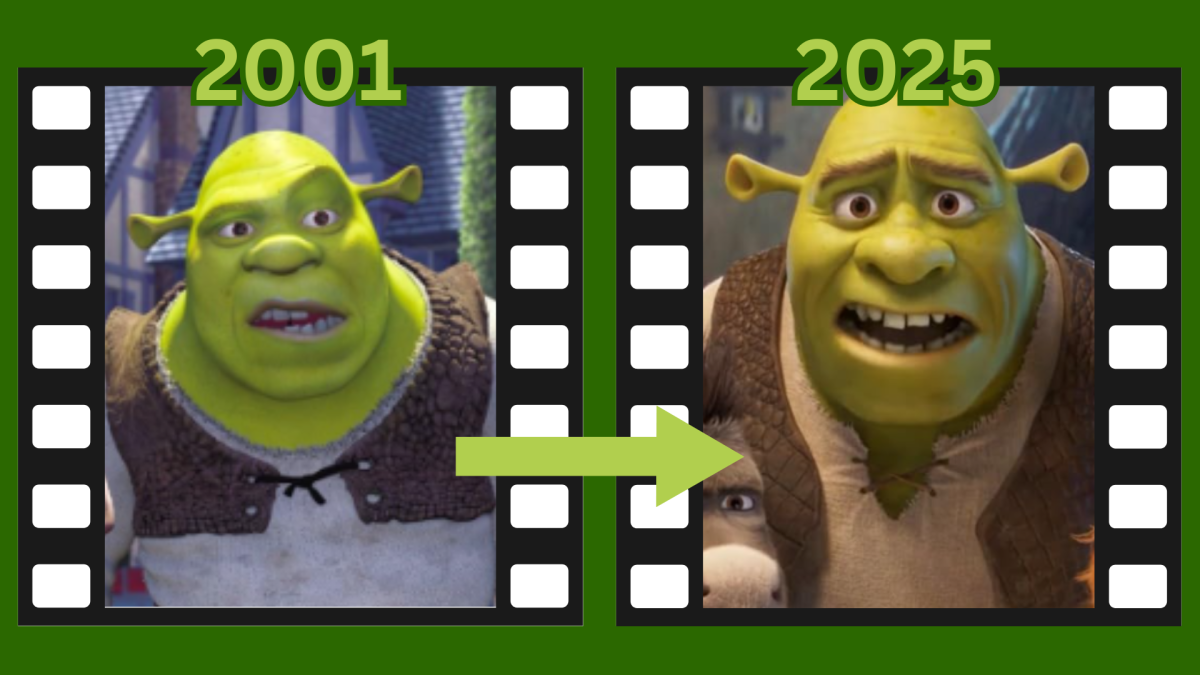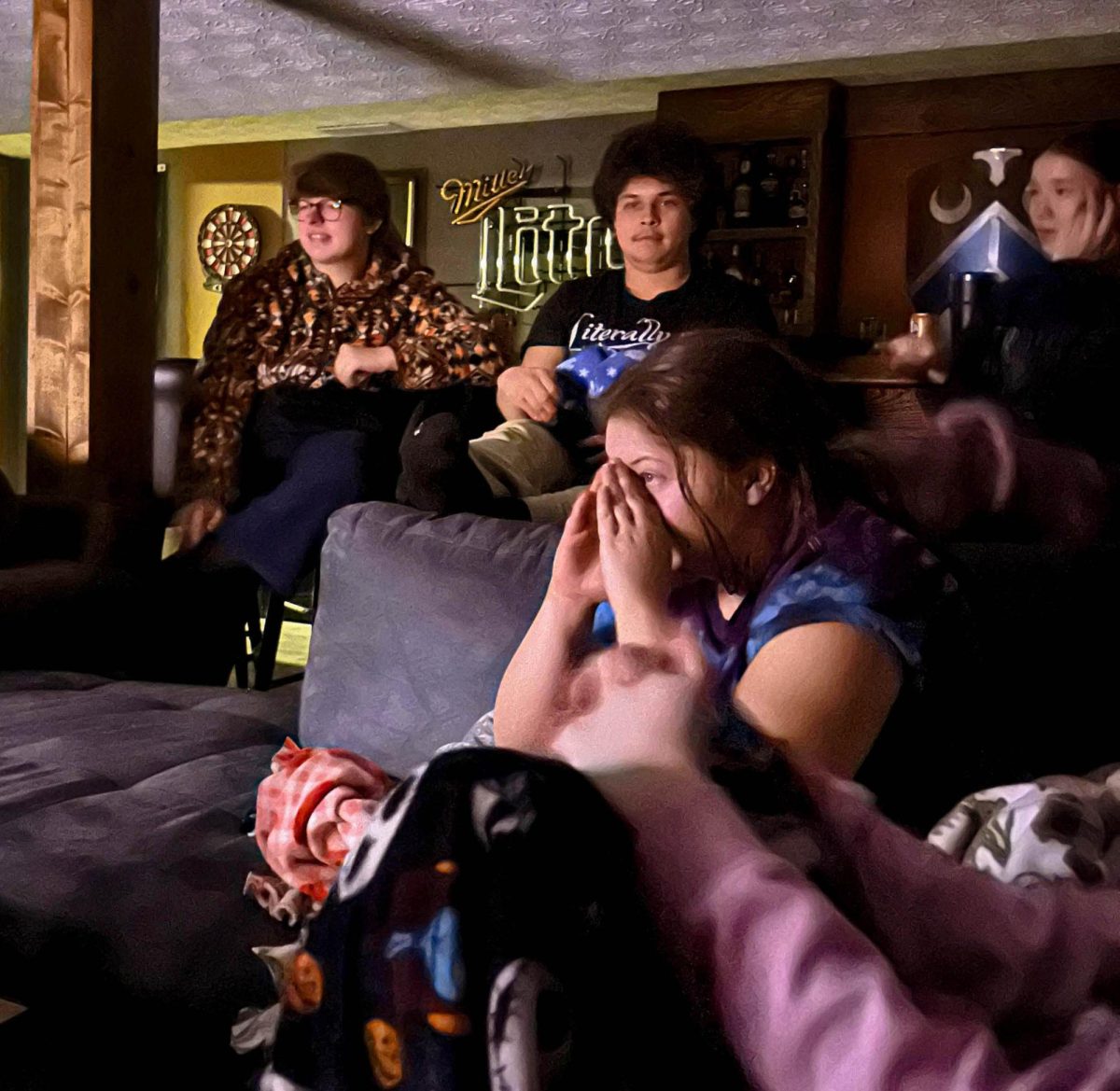Everyday Olivia Shutler (12) scrolls through countless TikToks, documentaries, and podcasts, seeking the newest, most mind boggling piece of true crime that can be explored.
“The way their minds operate is so interesting to me, that I have to know more,” Shutler explains.
If you, like Shutler, are interested in these individuals and have ever wondered why you have always been intrigued by serial killers or disturbing true crime, whether you’ve been drawn to listen to a true crime podcast or have been enticed to watch a documentary or a movie highlighting a serial killer, you are not alone.
Some of the most popular material in all forms of media follows the often heinous stories of murderous individuals. The topic is intriguing to many people of varying genders, ethnicities, and ages, yet, the question of whether or not the interest in these topics is normal remains.
In a recent study conducted by Harper’s Magazine, one in three Americans say that they consume true crime content at least once a week, concluding that Shutler’s interests are shared with millions of others.
The popularity of true crime and serial killers in multiple forms of media has skyrocketed in recent years. Perhaps the topic of serial killers truly kicked off when “Psycho” was released in 1960, and since then, content involving true crime has truly taken over the world of documentaries, Netflix originals, and podcasts. From Dec. 2019 to July 2021, Netflix has released a total of 18 true-crime related series and films that have been in the Top 5 most watched content on the Netflix app (The Ringer).
According to Parrot Analytics, a media tracking company that measures and reports audience demand for entertainment content, the production of true crime documentaries has increased by 63%, “while demand for them skyrocketed by 142%.”
Similarly, in a global measurement, Chartable, a podcast analytics company, reported that four out of the top ten listened to podcasts in the world discuss true crime. This includes “Crime Junkie,” “ Dateline NBC,” “Morbid,” and “Rotten Mango.”
All of this true crime content that has been rapidly gaining popularity has one trait in common: they explore the human desire to learn more about topics that are not easily understood.
Sean Ring, an AP psychology teacher at Westerville North, discusses how topics that push towards the edge of social norms have captivated audiences for decades. Ring explains how a topic such as serial killers intrigues one to know more about behaviors and events that go beyond the expected.
“The topics outside of social norms, that deviant behavior, draws people in. [Audiences] try to understand the things that are hard to understand,” Ring said.
Morbid or negative topics draw audiences in because they derive from a realm that is unreachable by most. Entertainment is popular when it discusses topics that are not experienced in everyday life; serial killers and true crime being one of the most popular explorations.
“We know entertainmentwise what we are most likely to see are these edgy, taboo, risque-type fantasy shows that people can safely escape into…[audiences] can watch it and feel like [they] have experienced it with the character not actually having to do it,” Ring said.
Topics that explore the edges of these social norms intrigue audiences, including Shutler, who explains that the feeling of exploring the unknown captures her the most about serial killer cases.

“The concept of things being unknown and unsolved intrigues me,” Shutler said.
Shutler is not alone in her interests in exploring the mysteries of the unknown in terms of serial killers. Howard believes that serial killers are intriguing because their brains operate differently than normal people, urging audiences to explore more into these individuals who bend and break social norms.
“[Finding] minds [that] are so much more different from normal people [is very intriguing,]” Howard said.
While these minds that break from the status quo are interesting, many people including Shutler are concerned that being intrigued by these topics is not moral or normal.
“I often think that I am a psychopath, because I am interested. I don’t have the same thoughts as these people, but the way their mind operates is so interesting to me, that I have to know more,” Shutler said.
While this notion may present itself to be humorous, this thought is backed up by lot’s of research.
In a 2017 study conducted by social psychologist Suzanne Oosterwijk, she confirms that humans are curious and eager to learn more about morbid topics. Oosterwijk explored this idea by conducting experiments in which people are told to choose from a series of images, containing either positive and negative topics.
Within the study, participants were more likely to select images that portrayed negative topics.
“In daily life people commonly seek out negative information…and voluntarily expose themselves to stimuli that portray violence, death or harm,” Oosterwijk said.
So, being intrigued by these stimuli, such as serial killers, is common because the human mind is hard wired to be drawn to concepts we do not understand or have not experienced. The human mind always craves to know more, and through Netflix shows such as Dahmer, we can experience and deep dive into topics like serial killers without having to experience them in reality.
While serial killers’ behavior is not moral, the human interest in them is only natural. As a species, we desire to know more about the unknown, and many topics encircling that realm involve negative or morbid topics.
“[People] are curious about negative stimuli because these stimuli allow people to acquire knowledge about the world…people may choose stimuli that portray death, violence or harm because they deviate from the norm, and thus are associated with a relatively strong gain in information,” Oosterwijk said.
While no one can deny the popularity of true crime media, the debate of whether or not these topics should be given a platform and discussed extensively captures the attention of students and the world.
This topic of controversy has recently been disputed over the newly popular Jeffrey Dahmer Netflix series titled “Dahmer – Monster: The Jeffrey Dahmer Story,” which has become the second most watched TV series on the streaming platform and has been renewed for two new seasons.
While the show gained massive popularity, responses from the general public have not aligned with the show’s success.
Olivia Shutler (12) believes that shows, such as “Dahmer,” glorify his actions and do not properly provide justice for the victims or their families.
“I’ve seen people make jokes about him, I have seen people dress up as him for Halloween. The victims’ families are still alive, and I think that it shouldn’t be given that platform if the shows do not properly address the victims,” Shutler said.
Milani Howard (9) agrees with Shutler and says shows that portray these morbid topics should consider other factors rather than focus solely on the success of the show.
“I don’t think they should have made [Dahmer] because of the victim’s families…Netflix didn’t ask [families] if they could showcase it,” Howard said.
In an interview with Insider, Rita Isabell, sister of Errol Lindsey, one of the victims of Dahmer, confirms she was never asked by Netflix for her permission, and proclaims that the refounded attention to the case resurrected emotions from her past.
“I was never contacted about the show. I feel like Netflix should’ve asked if we mind or how we felt about making it. They didn’t ask me anything. They just did it… It felt like reliving it all over again. It brought back all the emotions I was feeling back then,” Isabell said.
When creating content regarding serial killers and true crime, what draws the line between educating audiences and glorifying criminals is not entirely clear. While it is important to inform people about heinous actions committed by others and how to avoid these situations, creating content about these criminals illuminates their infamous lives at the expense of victim’s families revisiting their haunting pasts.
When content is produced following a topic like true crime, it is important to have thoughtful intentions with sharing this information, because when creating this content overshadowed by the desire for profit, the entertainment industry risks glorification of these murderous men.
































